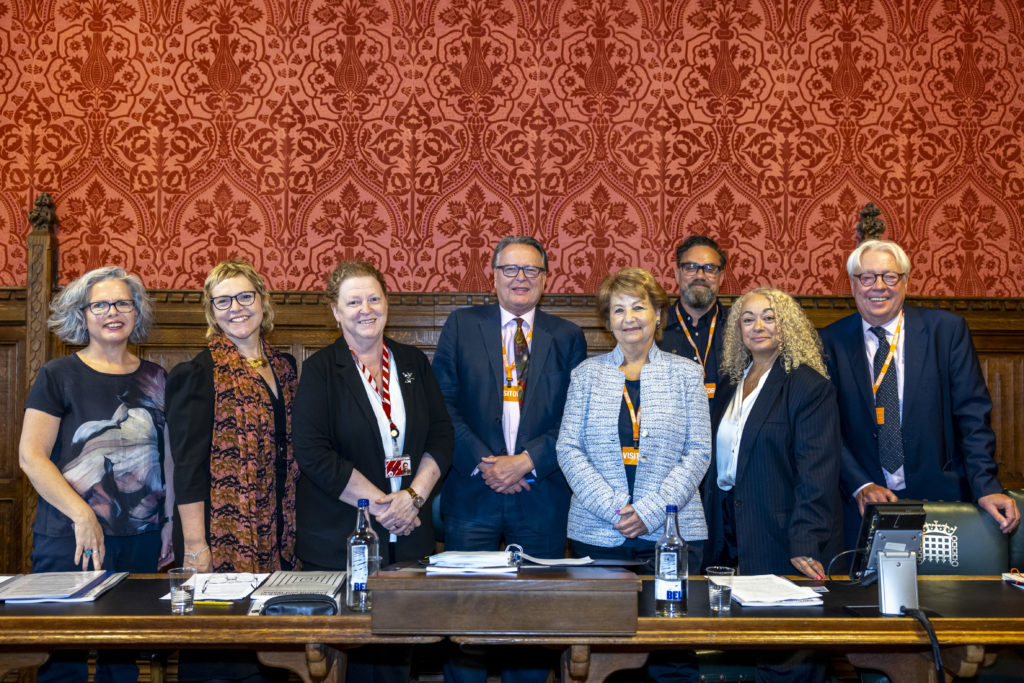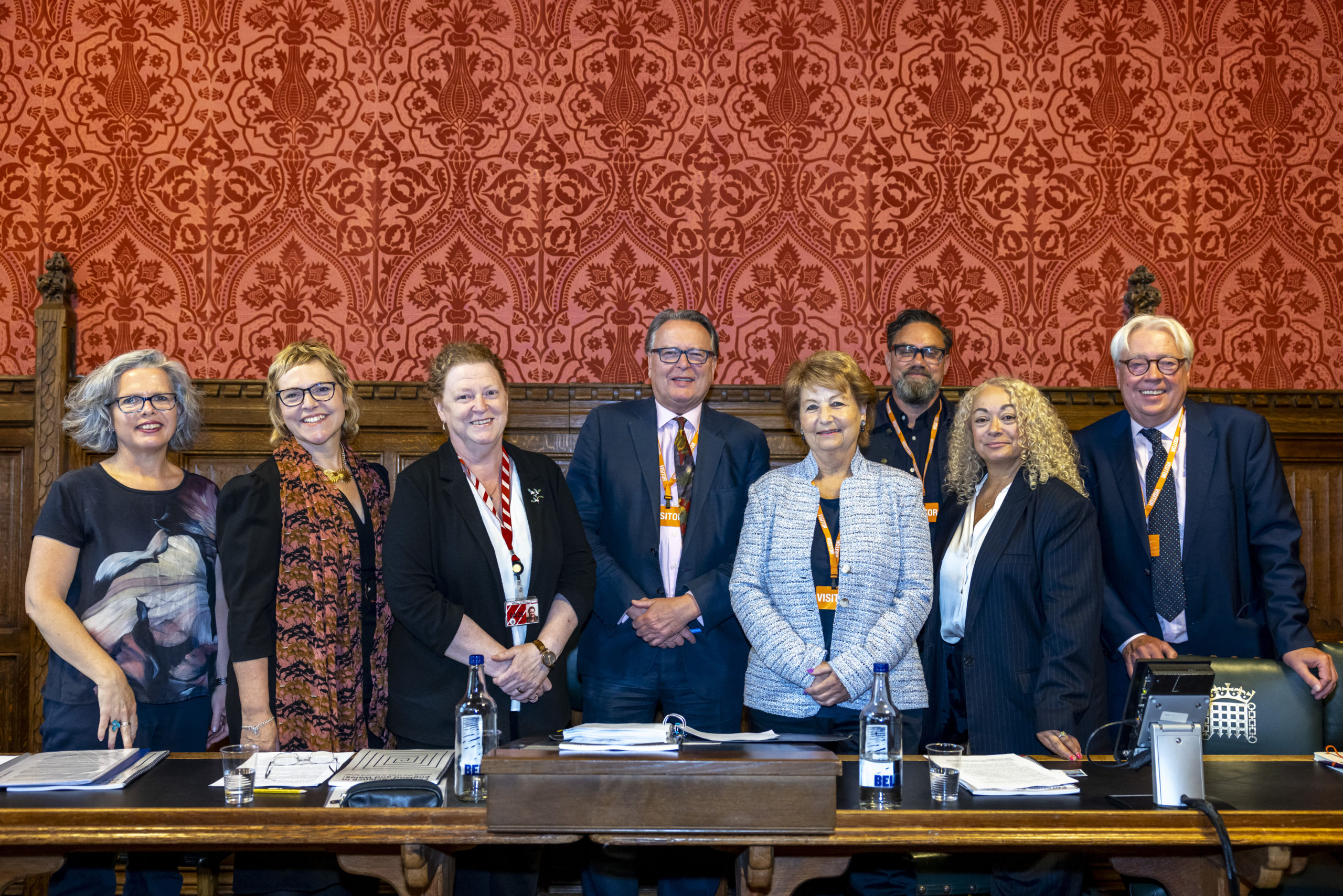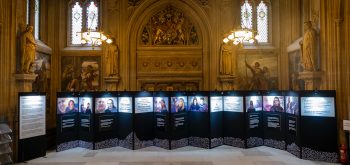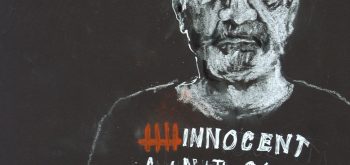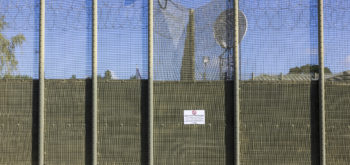A roll-call of miscarriages of justice representing ‘nearly 100 years of people’s lives lost to prison’ was read out at the launch of a three-year inquiry exposing forensic science failures. Professor Lady Sue Black, co-chair of the Westminster Commission on Forensic Science, said that the forensic sector, after seven reports in the last 20 years all warning of its increasingly alarming state, now seemed plunged into ‘a graveyard spiral’.
Prof Black, a forensic anthropologist, continued: ‘Our fear is that maybe this time we can’t pull up in time before the inevitable happens. We’ve left it too long.’ The cross-bench peer went on to say that ‘one might argue that, in fact, it has already happened’ listing the ‘miscarriages of justice that could have been prevented’.
That list included Sally Clark, Barry George, Victor Nealon, Tony Parris, Stephen Miller, Angela Cannings, as well as the more recent trio of DNA-related exonerations – Victor Nealon in 2014, Andrew Malkinson in 2023 and Peter Sullivan earlier in the year. This was ‘not an exhaustive list’, she said. ‘But it is in these alone, nearly 100 years of people’s lives that have been lost to prison for crimes that they did not commit, but for which they were sentenced, and we all know that there are more of those to come. That’s the inevitability.’
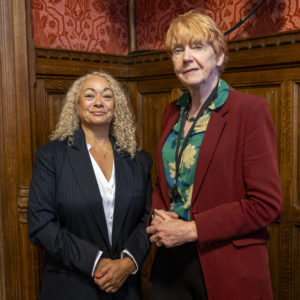
Kim Johnson with Vera Baird, the new chair of the CCRC
Kim Johnson MP, chair of the APPG on Miscarriages of Justice, said there had been ‘several shocking reminders of the urgent need to address this issue – from the Post Office Horizon scandal to the exonerations of Andrew Malkinson and Peter Sullivan, both of whom spent years wrongly imprisoned’. ‘These cases are not isolated incidents but symptoms of deep, systemic failings in our criminal justice system,’ she added.
- You can read our report on Forensic Science in England and Wales: Pulling Out of the Graveyard Spiral is published by the Westminster Commission on Forensic Science set up by the APPG on Miscarriages of Justice
- You could also read Hannah Devlin’s article in the Guardian and listen to Baroness Black and Professor Angela Gallop talking to the Double Jeopardy podcast
- Commissioners: Prof Angela Gallop CBE; Prof Lady Sue, Baroness Black of Strome, Dr Philip Avenell, Katy Thorne KC, Professor Carole McCartney, Glyn Maddocks KC (Hon), and Dr Jon Robins
- For background, read here: Threat to forensics ‘close to existential’.
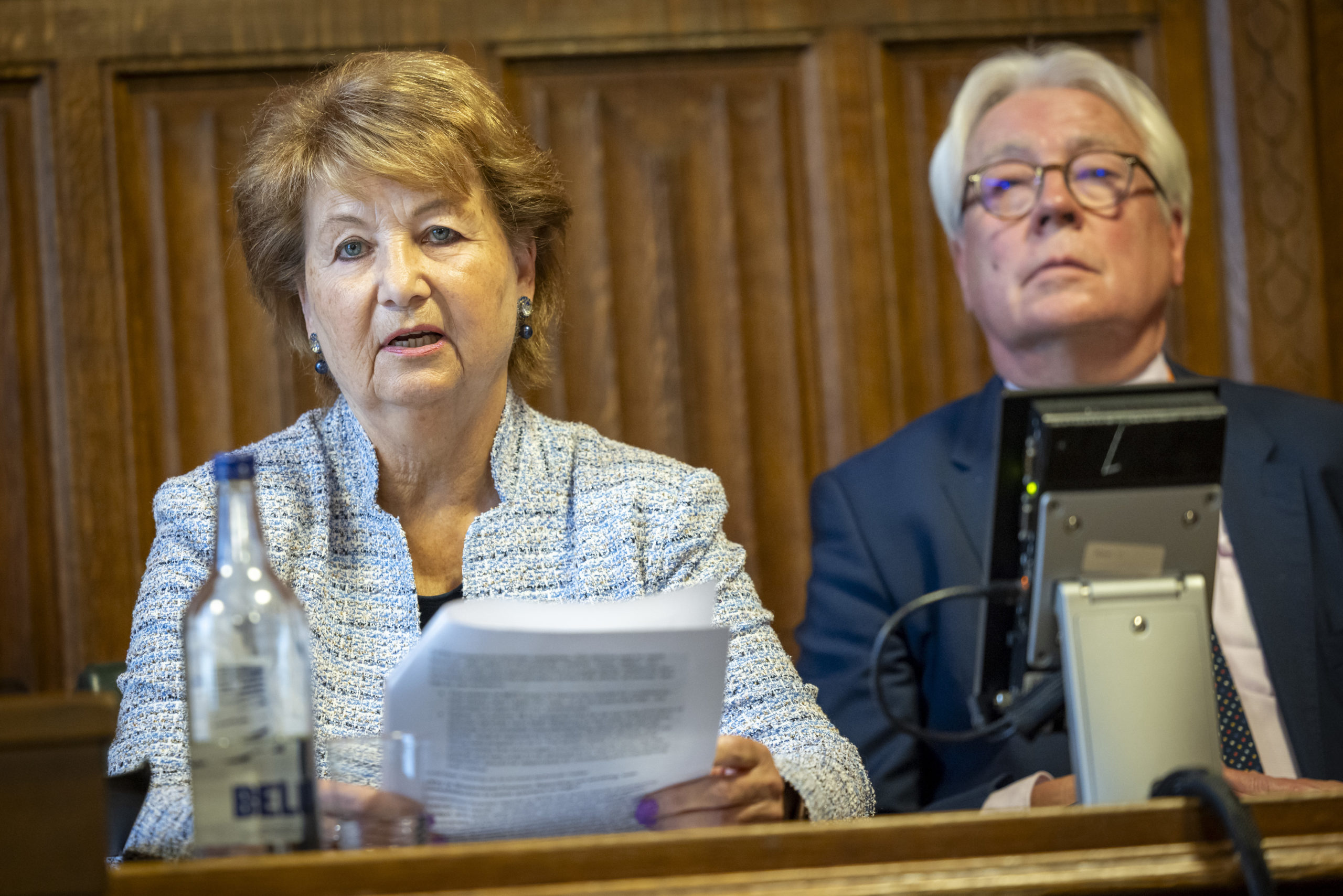
Prof Angela Gallop with Glyn Maddocks
Professor Angela Gallop, co-chair of the Westminster Commission, said: ‘If we want to avoid miscarriages of justice, we need to have strong forensic science sector which is overtly independent with public trust and confidence delivered by properly funded scientific.’
Prof Gallop, a forensic scientist, said that for ‘far too long’ providers of forensic services had been ‘teetering on the brink of insolvency’. She argued that the forensic sector had collapsed to the extent that there was ‘no real and practical commercial market’. She said that that left only two main forensic providers in the non-digital sector, the largest with 85% of the market ‘having recently rescued the second largest from insolvency’.
‘The evidence indicates that the mark declined because the police didn’t understand the true cost of the services they required. Their budgets appear to have been too tight to pay for them anyway, and they thought it was cheaper to insource services, thus reducing the size of the market and putting further pressure on provider companies. The decline was so rapid because after years of demands for ‘cheaper, faster, better’ the providers finally went beyond the limit of sustainability.’
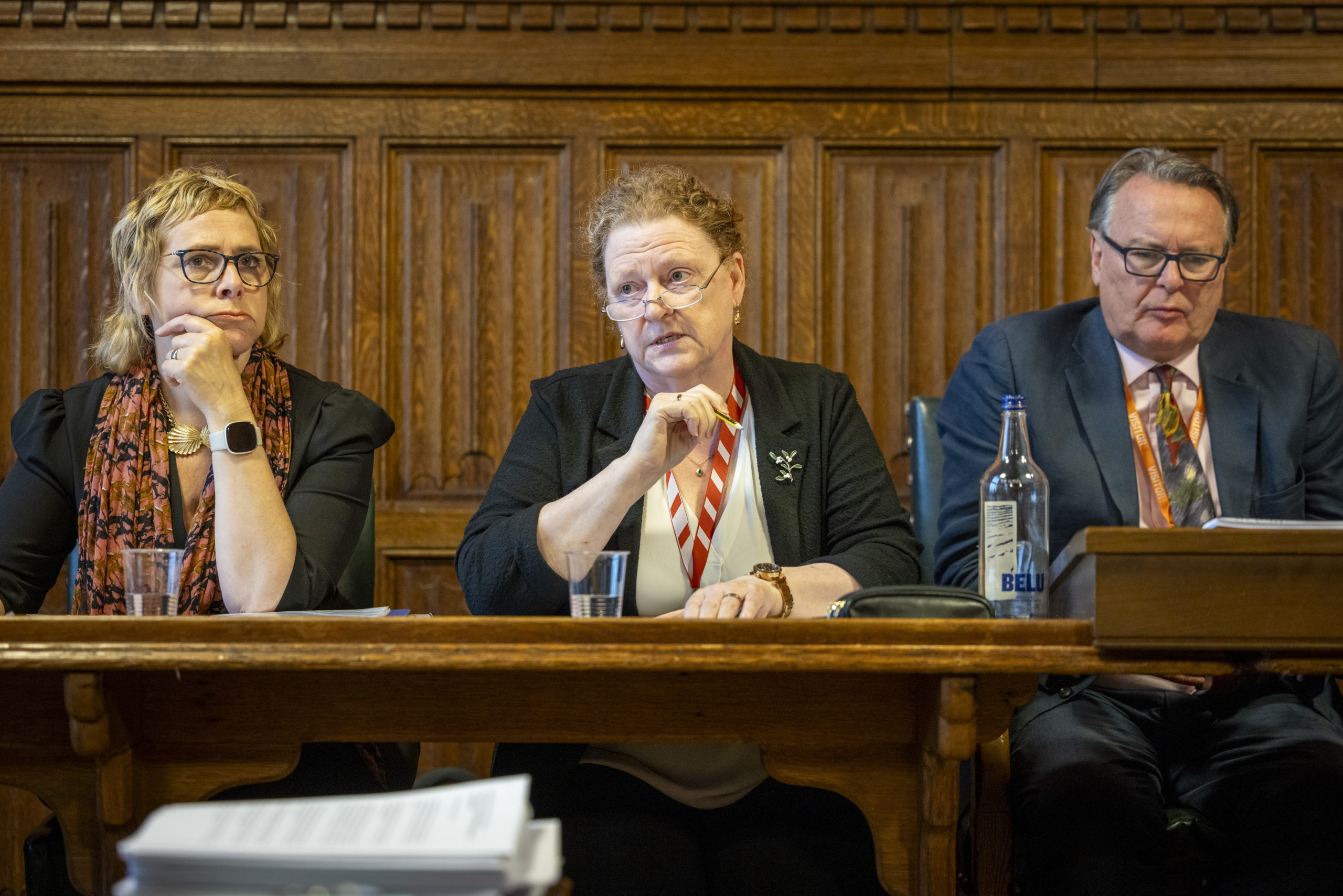
Sue Black (centre) with Katy Thorne and Tim Owen KC (chair)
Prof Black said that the Westminster Commission attempted to answer the question why the UK was no longer a world leader in forensic science. ‘And the answer is simple. We took our eye off the ball,’ she said. ‘England and Wales closed their national laboratory which neither Scotland nor Northern Ireland did, and then we created for a short time a successful commercial market. However, we watched as the smaller providers were squeezed out through a race to the bottom to offer the lowest prices. Ladies and gentlemen, forensic science is not cheap. It cannot be if we are to be truly world-leading.’
The market, she argued, was now ‘so thin’ as to be ‘virtually transparent’. ‘We can see the inner workings clearly and we can predict where it will continue to go wrong. Science belongs in the hands of the scientists it does not belong in the hands of police officers. They have their own job to do. The current trend of pulling science into a police force does not give us healthy science.’
According to Angela Gallop, the dysfunctional market had led to a postcode lottery in forensic provision as a result of two forces: commoditisation and fragmentation. ‘Commoditisation refers to the increasing reliance on just a few simple tests strung together masquerading with forensic strategies,’ she explained. ‘Fragmentation relates to the practice of splitting up work between different forensic providers, including police themselves, to achieve the lowest price. In combination, commoditisation and fragmentation had the effect of reducing technical skills and capabilities. In other words, dumbing down.’
The Westminster Commission makes 34 urgent recommendations, including:
- The government to immediately stabilise existing forensics provision and develop a plan to re-create the market from the current virtual monopoly
- An immediate halt in the expansion of police in-house forensic provision
- A national forensic strategy aiming in the long-term to remove forensic science provision from police oversight
- The creation of a new National Forensic Institute as a central authority on forensic science and to help rebuild its scientific credentials
- Legal aid to be more readily available for defence experts to help ensure a meaningful equality of arms
- The CCRC must have permanent staff members from scientific backgrounds and be much more ready to include forensic science in its re-investigation strategies
- The creation of a national storage capacity for evidence independent of the police
Download the report here
